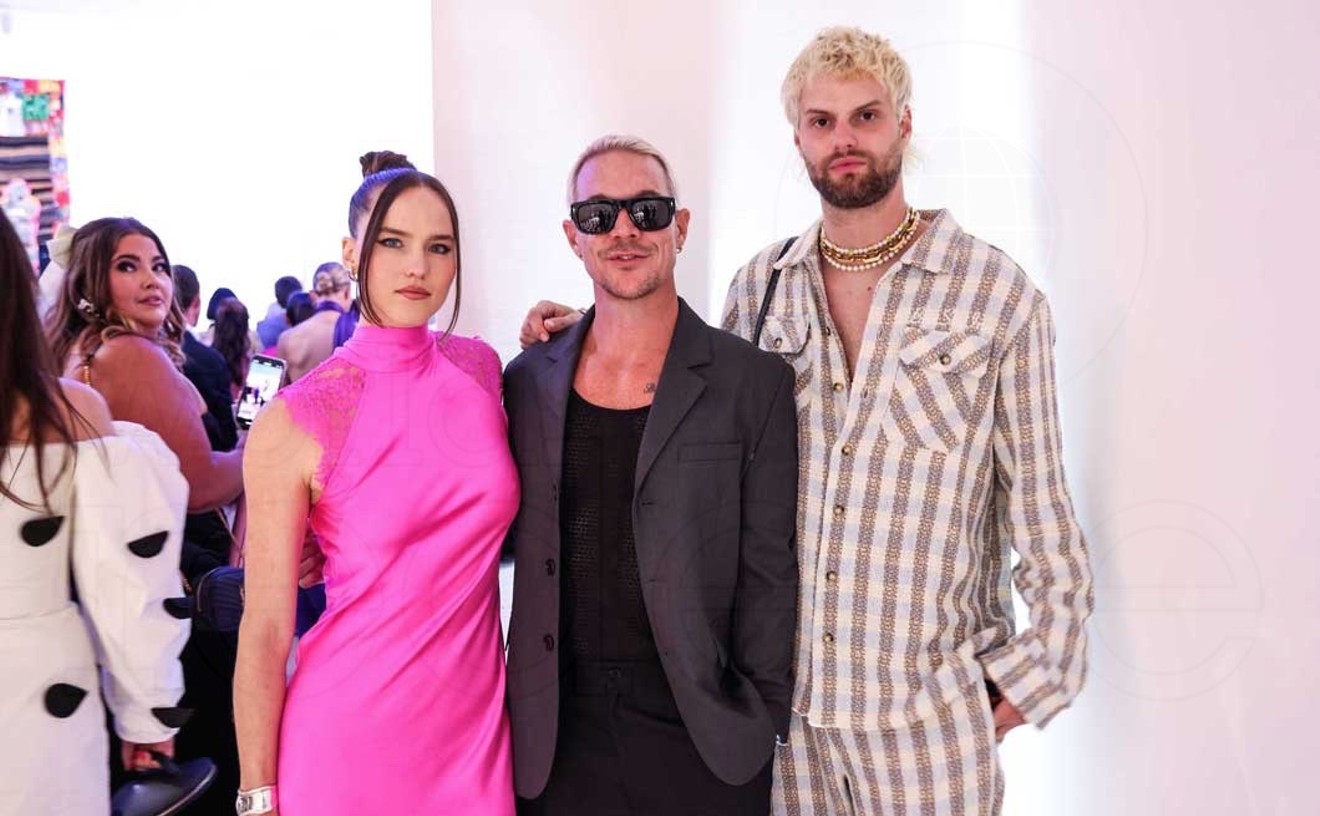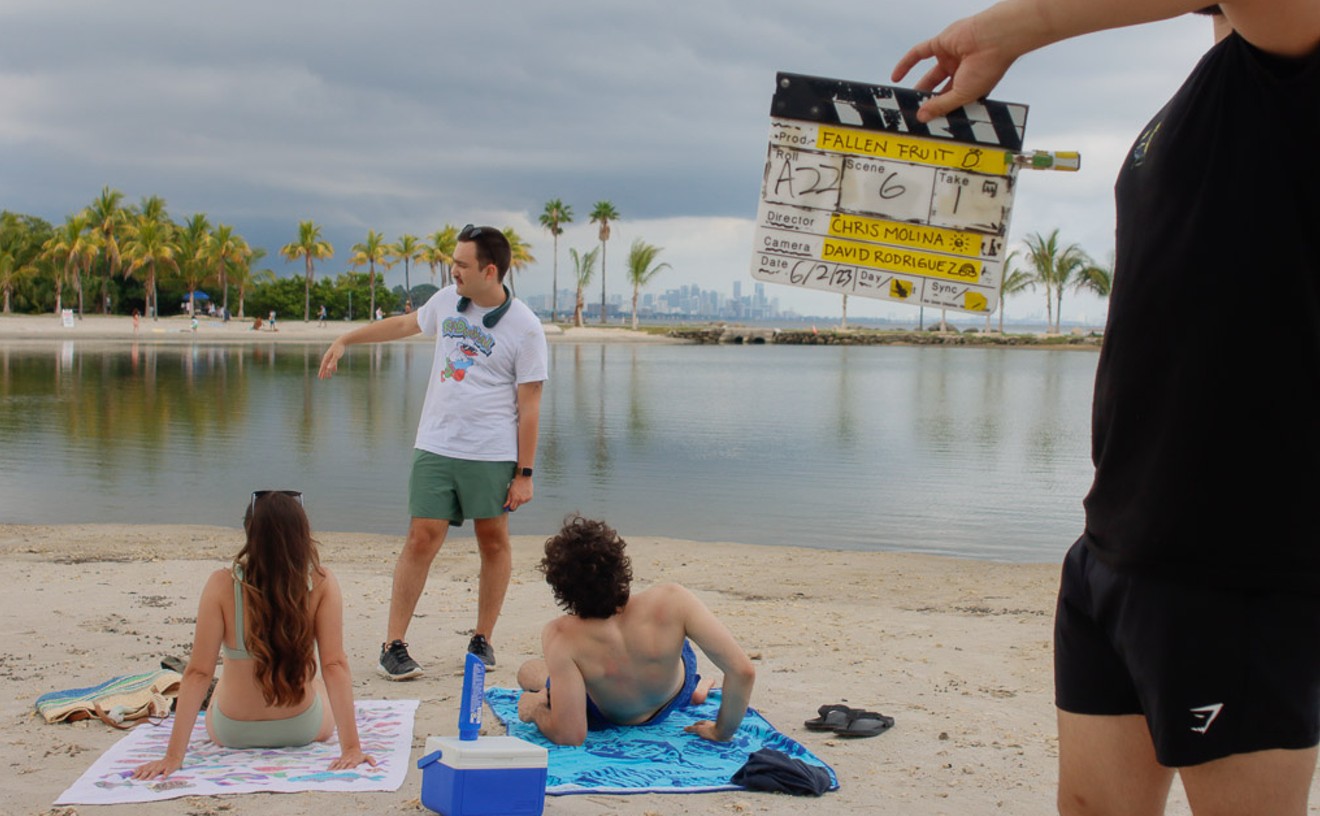Part Cuban, part Miamian - to varying degrees, depending on the generation - the Garcias mark el exilio time, waiting for a free homeland. Abuelo (Angel Espasande), driven senile by homesickness and the death of his beloved wife Hortensia, desperately wants to go back. His granddaughter Sofia (Evelyn Perez), an Americanized princess who shops at Burdines and orders take-out paella for her Anglo boyfriend Allan (Emanuel Gironi), fantasizes about an island she's never seen. Eric (Joey Perez), the hip brother, has just returned from a six-month trip to Europe, and celebrates the erosion of communism by bringing home pieces of the Berlin Wall, joyfully certain of Fidel's imminent defeat. While Mama Miriam (Martha Jorge) just wants her family to be happy, Papa Carlos (Emiliano Diez) declares that the moment democracy returns to his country, they're all heading back. Then there's Uncle Victor (Rafael Guzman), newly arrived in Miami, hoping Carlos and Abuelo will forgive him for having stayed behind after the revolution.
Many Miami audiences, especially Miamians of Cuban descent, will recognize the Garcias, their pain at being ripped from their roots, a pain less understood by their children. The members of this archetypal clan, the creation of local playwright Rafael V. Blanco, are the protagonists of La Caida, winner of the Deep South New Play Contest, presented in Spanish by Teatro Avante at El Carrusel Theatre.
In the more entertaining second half of Blanco's human comedy, the family is confronted with what they've all been waiting for: the actual fall. The question the playwright poses to them, and by extension to his audience - are you going back? - is rich with dramatic possibilities. And the play offers an answer, through its lack of resolution.
Before the fall, each Garcia (with the exception of Victor) has a firm position: either Cuban first or American first, either willing to return or not. Abuelo, Carlos, and Sofia definitely are Cuba-bound; Miriam will accompany Carlos. Eric, American-born, naturally assumes he'll stay in Miami. Victor knows only that he wants his freedom, and his family, back.
But after the fall, a pregnant Sofia and her new husband relocate to Atlanta, not Cienfuegos, Eric wants to find his heritage, and the rest of the family must face some prickly realizations. Only Victor understands his obligations, and follows his principles.
Such explosive confrontations between a family and history would make for great drama, but La Caida is intended as comic farce, immensely popular with Latin audiences. What is both interesting and disquieting about the work is Blanco's insistence on straddling two forms. Instead of straight tragedy - about a family that's lost something irreplaceable - or blatant slapstick, complete with slamming doors, mistaken identities, and bawdy jokes, the playwright uses a blend to paint the Cuban-American dilemma. The mix-ups, zany antics, and double entendres remain; so do the feelings of loss and confusion. And it's in the serious moments that Blanco sometimes loses his way and stalls the action, discussing the mixed emotions of Cuban exiles living in Miami rather than showing them.
Blanco, production stage manager at the Coconut Grove Playhouse and author of several other plays drawn from his Cuban background, directs with all the frenetic energy of farce. Still, some of the staging is forced, and the timing slow, especially when dialogue is weighed down by personal philosophy.
Although the characters are one-dimensional, their interchanges - from the good-natured bickering between brother and sister to the increasing frustration with the deteriorating Abuelo - are amusing and honest. The acting, with the exception of both Perezes (who try too hard), is real and consistent. Especially powerful is Guzman as the rejected brother, imbuing a small role with considerable impact. Todd Wren's warm lighting complements the set, an inviting Miami home by Rolando Moreno.
La Caida is by no means a perfect work. The characterizations border on the shallow, stereotyped, and even insulting (the Garcias scream without hesitation, and Sofia's Polish-Jewish lover is an idiot). The laughs don't come frequently enough, and the ending exceeds melodrama. But La Caida contains enough humor to entertain most audiences, and cleverly addresses a question on the minds of many families. The play may have only local appeal, but that appeal is a strong one.










